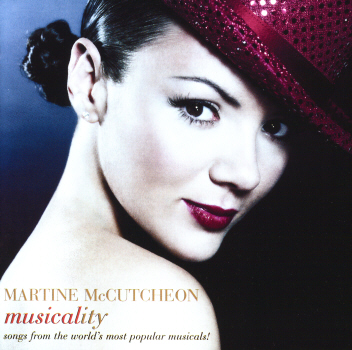Therefore I decided to 'Look Inward' and brainstormed my ideas, first abstractly on the train whilst listening to music-
Then I wrote up a clearer brainstorm, spider web-
These are pictures I took with my Iphone as my scanner is playing up..I have always been extremely enthusiastic and music,and have a wide variety of genres on my tastebuds. Ever since I was little when I had, had a bad day at school or a horrible dance lesson I'd get in the car in a huff and straight away my mum would put on my Martine McCutcheon C.D
 and I'd sing every word all the way home, by the time I reached my doorstep I was buzzing and back to the 'happy Jo'.
and I'd sing every word all the way home, by the time I reached my doorstep I was buzzing and back to the 'happy Jo'.Then as I got older I had my heart broken and found myself endlessly sobbing along to ballads and late night love songs, or nowadays when I've had a bad audition and don't feel like cheering up I allow myself to wallow in self pity for the duration of my tube ride in albums such as James Morrison and Corinne Bailey Raes second album.
This morning on my way to an important singing meeting/coaching session I found myself slightly nervous and over thinking the next couple of hours which i knew wasnt going to be good for my performance therefore I chose a couple of my favourite albums Jennifer Hudson and Lauryn Hills to inspire me and get me in the right mind set.
These times and experiences prompted questions that I would like to find out more about.
Just from a primary bit of research I have found that music experiences like singing, songwriting, listening to and discussing music, moving to music are used to achieve measurable treatment goals and objectives, this could be for things such as physical rehabilitation in stroke victims and can have critical use in treating mental illness, especially melancholia.
I have now ordered a book by 'Robert Burton wrote in the 17th century in his classic work, The Anatomy of Melancholy' to further my Knowledge on how music and dance can be used as or part of clinical therapy and biomusicology, musical acoustics, music theory, psychoacoustics and comparative musicology.


No comments:
Post a Comment